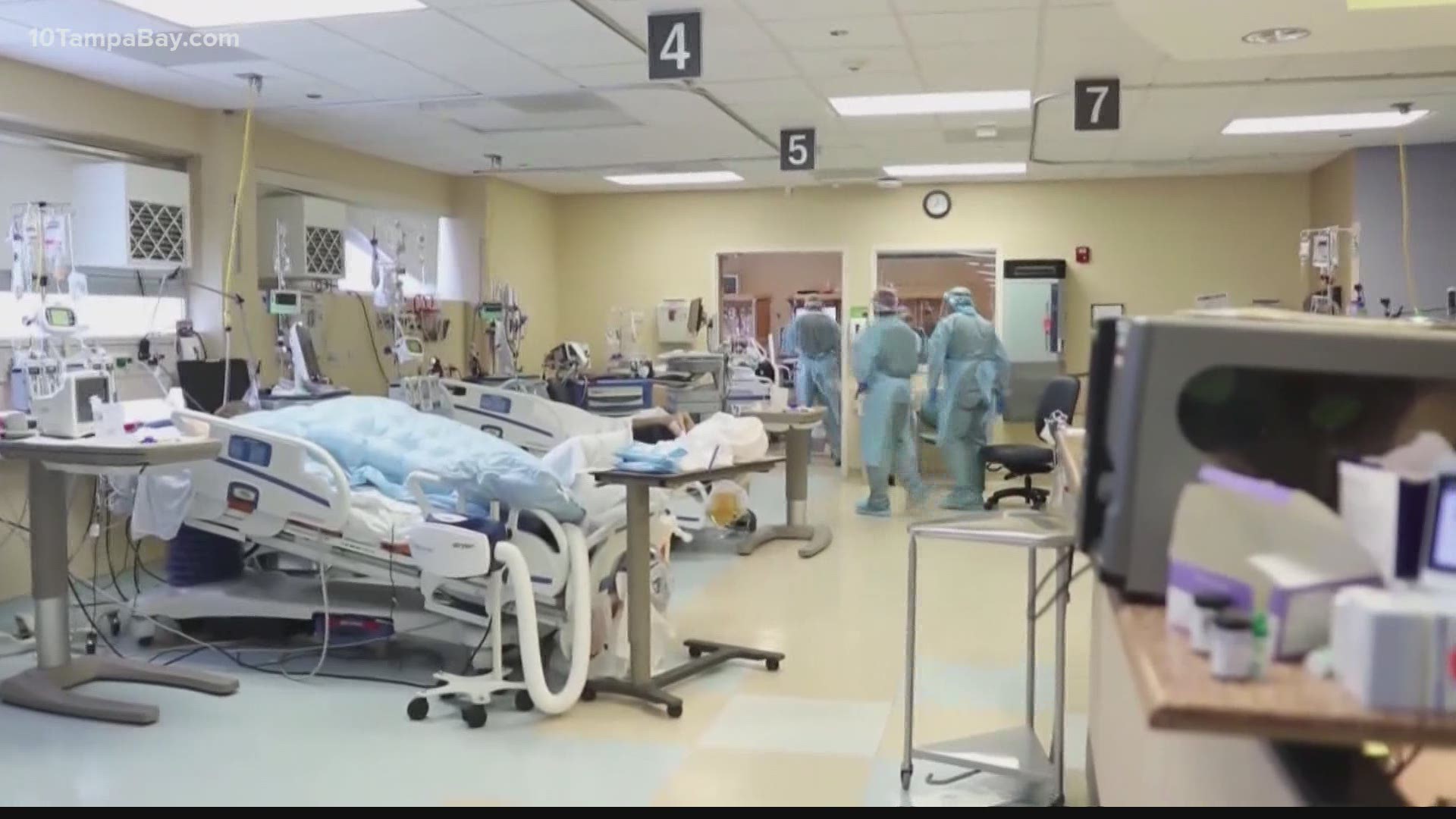TAMPA, Fla. — We continue to learn more about COVID-19's potential long-term impacts each day.
A recent study out of Imperial University in London shows the virus could come with cognitive costs. Doctors tested 84,000 people and found impacts to your brain. Some cases showed the brain 'aged 10 years.'
That data hasn't yet been peer-reviewed, but we went beyond the headline to see if doctors were seeing the same thing in the Tampa Bay area.
Doctors at Tampa General Hospital say cognitive issues are one of the most common early symptoms of COVID-19. That’s why they’re now at the forefront of studies into the virus.
“People may feel this feeling of being foggy or a little confused. You notice it, and you're like, ‘Wow, I'm not very sharp today’ and sort of feel like you're getting sick,” Dr. Clifton Gooch said.
Gooch is the Chair of USF Neurology and the Vice President for Research at Tampa General Hospital. He says more and more patients are reporting the same difficulties. Some months after recovering from COVID-19.
“We've identified a group of patients that have come to be known as the long-haulers. These are individuals that get COVID, they get over the acute infection, but then they have symptoms that persist for long periods of time. Furthermore, to make things even more concerning, these long-haulers often have the symptoms after even mild cases sometimes,” Gooch said.
He says 20-40% of those with COVID-19 are long-haulers that carry a new disease they never had. So far doctors know the virus can affect their lungs, heart, kidneys, and brain.
“Among the chronic symptoms that these patients experience, the cognitive issues are among the most common," Gooch said. "Particularly these difficulties with concentration, focus, memory, feeling foggy, you know, slowed processing of your thoughts. These are present in most of the studies that have been done in a majority of patients."
Gooch says the frontal, temporal, occipital, and parietal lobes can be damaged. While more long-haulers get treated at TGH doctors hope to learn more, saying we’re just crossing the threshold in Tampa Bay where many have fully recovered but found they still have symptoms.
“Will these be reversible changes? Will they be chronic permanent changes in some individuals? These are questions we don't know the answer to and time will tell as we move forward from this point, whether it's going to be permanent or something that may fade with time,” Gooch explained.
Dr. Gooch says there is a way to avoid these cognitive effects. It goes back to what the CDC has said all along, social distance, wear a mask and wash your hands. The key here is to not get sick.
What other people are reading right now:
- Trump, Biden will both campaign on Thursday in Tampa
- Can I change my vote in Florida? Google search spikes after President Trump's tweet
- NHC monitoring system in southwestern Caribbean Sea, could become tropical depression next week
- Florida man accused of changing Gov. DeSantis' voter information
- NFL plans to limit capacity at Super Bowl LV in Tampa
- 3 ways election night 2020 could be different
- What you need to know about the 6 constitutional amendments on Florida ballots
►Breaking news and weather alerts: Get the free 10 Tampa Bay app
►Stay In the Know! Sign up now for the Brightside Blend Newsletter

